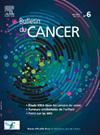[全科医生为肿瘤患者提供护理的经验。病史定性研究]。
IF 1.1
4区 医学
Q4 ONCOLOGY
引用次数: 0
摘要
背景:关于初级医疗中处于积极治疗阶段的患者的随访研究很少。本研究旨在建立一个真实临床情况的语料库,并对数据进行归纳分析:研究分为两个阶段:个案研究和逐字记录的定性分析。作者使用访谈指南进行了个别访谈。结果:共确定了六个主题:结果:确定了六个主题。宣布诊断结果是一个关键时刻。患者强调了全科医生的反应能力和协调能力,并强调了全科医生的参与。在积极治疗阶段,他们定期咨询全科医生,并询问相关信息。他们对此充满信心。他们还指出,有必要为求助于全科医生提供便利,尤其是在出现实际或想象中的紧急情况时:讨论:癌症流行率和发病率的增加意味着全科医生需要大力参与。当局正在倡导加强全科医生的 "关键作用",但并未对其进行明确界定。人们认为全科医生缺乏技能,这可能是全科医生参与的一个障碍。全科医学专业第三阶段的癌症培训不足。通过汇编和分析病例,可以重新确定培训目标,并列出管理癌症患者所需的技能。本文章由计算机程序翻译,如有差异,请以英文原文为准。
Vécu de patients dans la prise en soin d’une néoplasie par leur médecin généraliste. Étude qualitative de narrations de cas
Contexte
Peu de recherches se sont intéressées au suivi des patients en phase active de traitement en soins primaires. L’objectif de cette étude était d’initier la constitution d’un corpus de situations cliniques authentiques de réaliser une analyse inductive des données.
Méthode
Recherche en deux temps : étude de cas et analyse qualitative des verbatims. Les auteurs ont mené des entretiens individuels à l’aide d’un guide d’entretien. Les questions ciblaient leur vécu, en insistant sur la relation avec leur généraliste.
Résultats
Six thématiques ont été identifiées. L’annonce du diagnostic a été un moment marquant. Les patients ont insisté sur la réactivité de leur généraliste, sur son travail de coordination et ont souligné son implication. Ils le consultaient régulièrement au cours de la phase active de traitement, et étaient en demande d’informations. Ils se sentaient en confiance. Il a été noté la nécessité de faciliter l’accès au médecin généraliste, notamment en cas d’urgence réelle ou ressentie.
Discussion
L’augmentation de la prévalence et de l’incidence du cancer demande une implication forte de la médecine générale. Les autorités prônent un renforcement du « rôle de pivot » du médecin généraliste sans clairement le définir. Le manque ressenti de compétences peut être un obstacle à l’implication des généralistes. La formation en cancérologie au cours du troisième cycle des études médicales de médecine générale est insuffisante. La réalisation d’un corpus de cas et son analyse, permettraient de redéfinir les objectifs de formation et de lister les compétences requises pour la prise en charge des patients cancéreux.
Background
Little research has been done on the follow-up of patients in the active phase of treatment in primary care. This study aimed to build up a corpus of authentic clinical situations and carry out an inductive analysis of the data.
Method
Research in two stages: case study and qualitative analysis of verbatims. The authors conducted individual interviews using an interview guide. The questions targeted their experiences, focusing on their relationship with their general practitioner.
Results
Six themes were identified. The announcement of the diagnosis was a key moment. Patients emphasised their general practitioner's responsiveness and coordination, and stressed his involvement. They consulted him regularly during the active phase of treatment, and asked for information. They felt confident. The need to facilitate access to the general practitioner was noted, particularly in the event of a real or perceived emergency.
Discussion
The increase in the prevalence and incidence of cancer means that general practitioners need to be heavily involved. The authorities are advocating a strengthening of the general practitioner's “pivotal role”, without clearly defining it. A perceived lack of skills may be an obstacle to general practitioner involvement. Training in cancer during the 3rd cycle of general medical studies is inadequate. By compiling and analysing a corpus of cases, it would be possible to redefine the training objectives and list the skills required to manage cancer patients.
求助全文
通过发布文献求助,成功后即可免费获取论文全文。
去求助
来源期刊

Bulletin Du Cancer
医学-肿瘤学
CiteScore
1.90
自引率
16.70%
发文量
224
审稿时长
37 days
期刊介绍:
Without doubt, the ''Bulletin du Cancer'' is the French language publication of reference in the field of cancerology. Official organ of the French Society of Cancer, this journal covers all the information available, whether in the form of original articles or review articles, but also clinical cases and letters to the editor, including various disciplines as onco-hematology, solids tumors, medical oncology, pharmacology, epidemiology, biology as well as fundamental research in cancerology. The journal proposes a clinical and therapeutic approach of high scientific standard and regular updates in knowledge are thus made possible. Articles can be submitted in French or English.
 求助内容:
求助内容: 应助结果提醒方式:
应助结果提醒方式:


